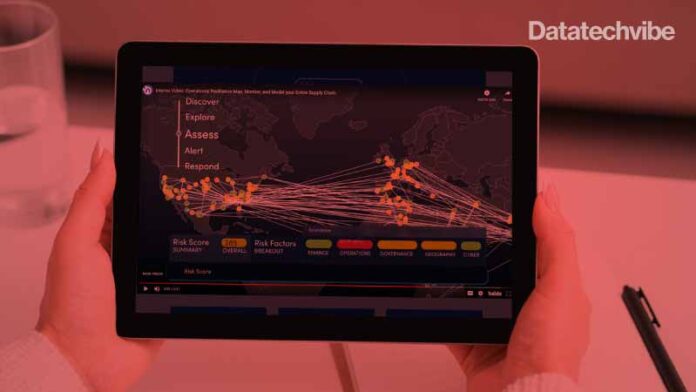Interos, the operational resilience company, announced that it has significantly enhanced its industry-leading AI-powered platform to deliver instantaneous visibility into the extended supply chains of organisations worldwide and to provide powerful continuous insight into three major risk categories impacting global vendor relationships: concentration risk; compliance with government prohibitions and restrictions; as well as Environmental, Social and Governance (ESG) transparency.
The company’s breakthrough SaaS platform allows private and public sector clients to map their global supplier relationships in real-time and to continuously monitor risks, including pandemics, natural disasters, cyber threats, unethical labour practices, financial vulnerabilities and more.
Bisceglie, a recognised supply-chain risk management expert, observes that traditional methods of semi-annual, manual vendor surveys fall far short of the multi-factor, multi-tier challenge presented by both digital and physical supply chains. The imperative today is for the C-Suite to adopt advanced technology for an integrated, comprehensive, and continuous view of the risk landscape.
Bisceglie notes that amid the unprecedented series of supply chain shocks to the global economy — including COVID, the Suez Canal debacle and more — a new international survey, the Interos Annual Global Supply Chain Report, revealed that global supply chain disruptions cost large companies, on average, $184 million a year.
At its core, the Interos Operational Resilience Cloud maps, monitors, and models the enterprise’s extended supply chain to identify, manage and reduce operational, reputational, and compliance risk worldwide.
Also Read: Cloud Adoption Strategies For Enterprises
The company’s unique platform features include:
- Visualise and explore your supply chain to the Nth tier — seeing where your suppliers and sub-tier suppliers are located
- Leverage the world’s largest business relationship knowledge graph so that you can understand – and optimise — buyer and seller relationships
- Continuously monitor the health of your extended supply chain against six key risk factors
- The most comprehensive risk scoring methodology includes a wide range of risk factors, variables, and attributes that filter at the firm, country, and industry levels
- Access through a SaaS application or via APIs that integrate the best operational resilience information into your business systems and data lakes
Some of the many supply chain uncertainties confronting the C-suite these days include:
- Ensuring suppliers and sub-tier suppliers are not on the denied entities list
- Evaluating and eliminating ESG risk exposure from your suppliers and sub-tier suppliers
The recent supply-chain-focused ransomware attack on Miami-based IT management software provider Kaseya exemplifies the need for greater vigilance by both the public and private sectors.
Noel Calhoun, Interos CTO, observes: “In one global hack, these cybercriminals got Kaseya, Kaseya’s MSP customers, and then the customers of those MSPs. That’s a lot of leverage, and that’s why supply chain attacks against software providers are potentially so dangerous. SolarWinds and Kaseya are not the only two companies that provide remote IT management software. One data point is a dot, two data points are a line. One has to assume now that this trend will continue.”









